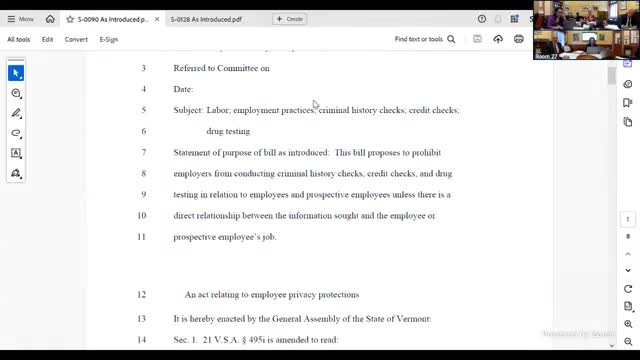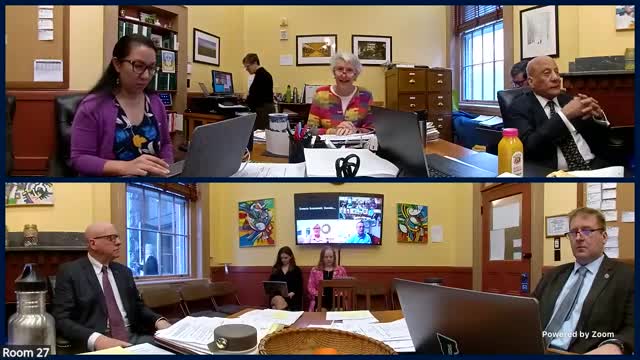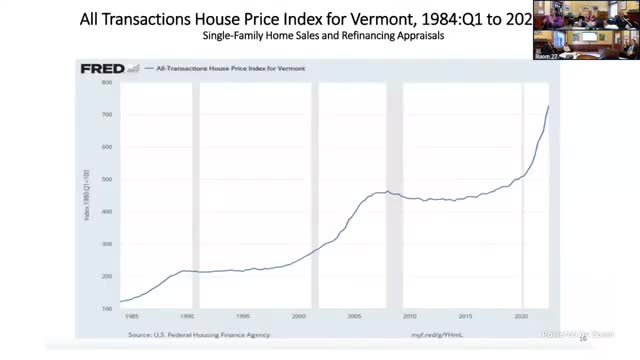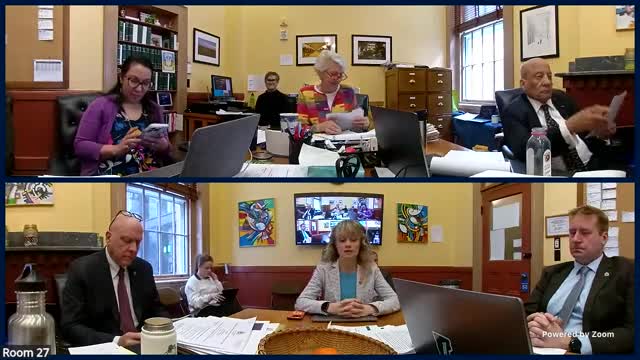Article not found
This article is no longer available. But don't worry—we've gathered other articles that discuss the same topic.

Committee hears proposal to eliminate subminimum wages and raise base wage for many workers

Committee hears case to exempt military retirement and survivor benefits to recruit retirees to Vermont

Committee reviews broad housing concept to ease permitting, increase density and speed build-out near water and sewer

